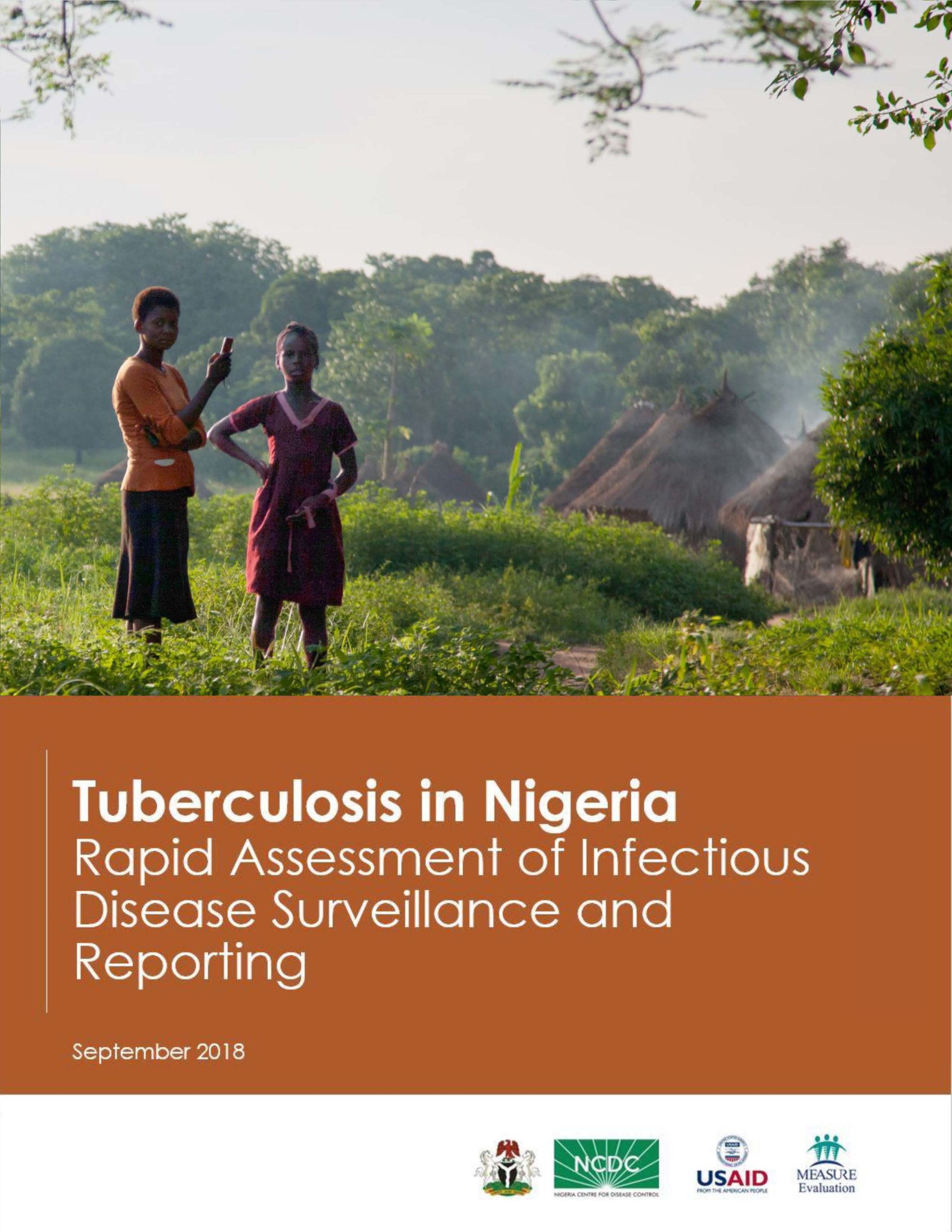Tuberculosis in Nigeria: Rapid Assessment of Infectious Disease Surveillance and Reporting

Abstract: Background: Effective infection control requires a functioning surveillance system. The Integrated Disease Surveillance and Response (IDSR) strategy was developed and adopted in 1998 for Africa as a comprehensive public health approach. Subsequently, Nigeria adopted the IDSR Technical Guidelines, which defined operations and procedures for reporting priority diseases, including tuberculosis (TB).
Objective: The objective of the assessment was to investigate and report on the challenges of TB notification through the IDSR strategy.
Methods: This mixed-methods rapid assessment included a desk review, review of facility-level data, and qualitative interviews collected primarily through key informant interviews with purposively sampled managers and health workers at all levels of IDSR and TB program implementation.
Results: The assessment revealed that TB cases are being notified through the IDSR, but also through the national system, using different definitions and procedures and without integration of the data reported by each system. A major observation was that health facilities, especially private facilities, failed to comply with mandatory reporting of priority diseases. Additional challenges hampering effective implementation included inadequately trained human resources and poor infrastructure.
Conclusion: Improving the effectiveness of IDSR and TB reporting, and ensuring availability of strong data for decision making, requires improved education on IDSR, engagement of the private sector in surveillance, and strengthened systems for logistics and diagnosis.
Objective: The objective of the assessment was to investigate and report on the challenges of TB notification through the IDSR strategy.
Methods: This mixed-methods rapid assessment included a desk review, review of facility-level data, and qualitative interviews collected primarily through key informant interviews with purposively sampled managers and health workers at all levels of IDSR and TB program implementation.
Results: The assessment revealed that TB cases are being notified through the IDSR, but also through the national system, using different definitions and procedures and without integration of the data reported by each system. A major observation was that health facilities, especially private facilities, failed to comply with mandatory reporting of priority diseases. Additional challenges hampering effective implementation included inadequately trained human resources and poor infrastructure.
Conclusion: Improving the effectiveness of IDSR and TB reporting, and ensuring availability of strong data for decision making, requires improved education on IDSR, engagement of the private sector in surveillance, and strengthened systems for logistics and diagnosis.
Shortname: tr-18-292
Author(s): Olusola Aruna, Ifeanyi Nsofor, and Kola Oyediran
Year: 2018
Language: English
Region(s): NIGERIA
Resource Type: Guidance and Tools
Source: MEASURE Evaluation
Filed under: Infectious disease, Nigeria, Notification, Rapid Assessment, Report, Reporting, Surveillance, Tuberculosis
